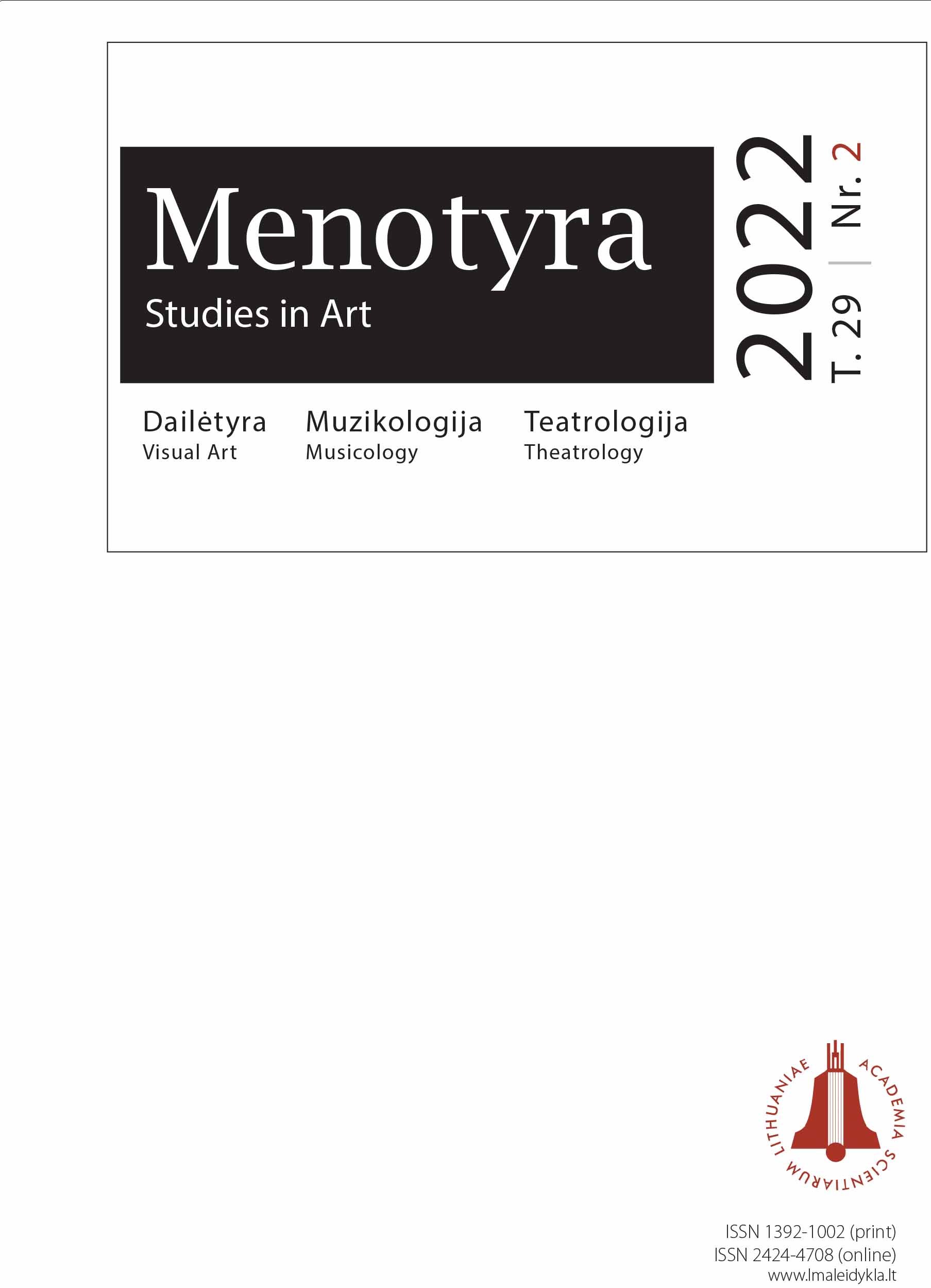Vokiškųjų Lied verbalinio teksto problema: originalo tekstas versus vertimo tekstas
The Issue of the Lyrics (Verbal Text) of the German Lied: The Original vs. Translations
Author(s): Ernesta Juškaitė, Gražina DaunoravičienėSubject(s): Cultural history, Music, German Literature
Published by: Lietuvos mokslų akademijos leidykla
Keywords: German Lied; verbal text; musical text; translation theory; syntax;
Summary/Abstract: The variants of translations of the poetic lyrics of Richard Strauss’s song Zueignung, Op. 10 No. 1 (to Hermann von Glim’s poem, 1885) into Lithuanian, done in the Soviet era and kept in the archives of the Lithuanian Radio and Television (LRT), testify to the negative influence of the translation process on the interrelationship between the poetic and musical texts in respect of the original piece. The methodology of comparing the original and translated lyrics used in the research revealed considerable interlinguistic and intralinguistic differences emerging after the lyrics had been translated into Lithuanian. In the analysis of translations of the texts of Strauss’s song Zueignung, Op. 10 No. 1, the authors relied on the model of translation criticism by Christiane Nord (1991, 2005). Based on it, several translation tactics applied intuitively by the Lithuanian translators in the process of the translation of the lyrics were observed. We refer to Vinay and Darbelnet’s indirect translation method (1958), Recker’s all kinds of translation transformation (1950), and Nord’s three-phase model (1991). It was impossible to identify the specific methods that the translators used in the translation of the verbal texts as the competence of a researcher into translation studies is required in order to establish such facts. The analysis of the translation variants of the poetic lyrics of Strauss’s song Zueignung led to the conclusion that in the translation process, the translators frequently changed the verbal syntax of the Lied, which contradicted the situations of rhetorisation of the musical syntax and the musical text. The results of the research prove that, from the point of view of the coexistence of the verbal and the musical texts, in quite a few cases automatic adaptation of the translated text to a stable musical text leads to the situation when musical works of the Lied genre can no longer function adequately. The reason for this is the discrepancy between verbal and musical syntaxes and their semantic meanings, which contradicts the idea of a meaningful interaction between the composer’s two texts.After translating a verbal text into another language, a Lied-type composition can convey the composer’s idea only in the presence of a harmonious structural and meaningful interaction between the two texts.
Journal: Menotyra
- Issue Year: 29/2022
- Issue No: 2
- Page Range: 127-152
- Page Count: 26
- Language: Lithuanian

